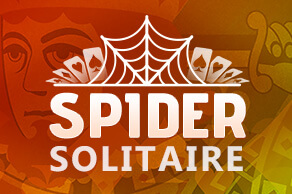I was watching this week’s episode of “The Mindy Project” a little bit late this morning, and found myself pining for what could have been a truly amazing conversation between Mindy Lahiri (series creator Mindy Kaling) and her boyfriend Danny Castellano (Chris Messina) about “The Godfather.” Sadly, I was thwarted in this, since in the episode Mindy and Danny did not make it to the movie. But it got me thinking: Which two fictional characters would you like to see talk about a particular piece of pop culture?
• “How My Little Pony Became a Cult for Grown Men and Preteen Girls Alike,” by Lisa Miller: Much has been written about the appeal of Equestria, and even more ink has been spilt in psychological analysis of Bronies, adult men who like “My Little Pony: Friendship Is Magic.” Miller, though, has written one of the most thoughtful considerations of the show I have read.
“Twilight Sparkle is like Bilbo Baggins, a reluctant traveler dispatched by a powerful mastermind to parts unknown. She is also like Hermione Granger, an overachiever with a condescending side, and like Dorothy, she is caught in a quarrel betwixt magical rivals,” she writes. “It is about a friendship among six very different characters, and the safe universe they create through their loyalty to one another, a kind of intimate paradise that transcends family ties, job responsibilities, and affiliation with other tribes. This is a vision of friendship that articulates a preteen’s deepest yearning and at the same time evokes a memory, perhaps rose-colored, among adults — preoccupied as they are with their relentlessly present-tense lives — of an age when minutes, hours, whole days, and weekends could be lost to imaginary play, joint projects, and the total abandonment of self to the clan that claimed you as its own.”
• “Finish that Book!” by Juliet Lapidos: Lapidos spends a bit too long defending the idea of writing an argument for how to read, but she makes a good case for reading all the way through even books you do not find yourself loving.
“Charles Dickens’s first novel, The Pickwick Papers is long and dated. I quickly grew tired of Samuel Pickwick’s adventures, which were probably funny for 19th-century readers but which I found annoyingly quaint,” Lapidos explains. “Deep into the novel Mr. Pickwick is incarcerated at Fleet Prison over a financial dispute. Suddenly Pickwick Papers isn’t quaint at all but social satire that skewers the absurd unfairness of debtor’s prison. Dickens cared deeply about that subject and would return to it many times over the course of his career. So when that turn happened in the novel, I felt as though I were watching Dickens become Dickens before my eyes.”
• “How All Those Intern Lawsuits Are Changing Hollywood,” by Eriq Gardner: As interns have challenged the Hollywood studios, which often use them for menial labor or work that has value but is not strictly educational, some big companies have started paying them — and some are pulling the ladder up behind them.
“The suits are fundamentally changing the way Hollywood indoctrinates young workers, calling into question decades of tradition under the guise of apprenticeship. NBCUniversal, for example, has changed its policy and is paying its interns, and on Oct. 22 it agreed to shell out $6.4 million to resolve intern legal claims. Other companies, including Viacom, also have begun to pay all interns. Lena Dunham, who brought unpaid helpers on her recent book tour, agreed to pay them after an online outcry,” Gardner explains. “Others, including Fox and its affiliated production companies, have responded by suspending internships, leading some to believe that an entertainment institution — the entry point that launched everyone from Fox Networks Group CEO Peter Rice to NBC Entertainment chairman RobertGreenblatt — could become a victim of this generation’s changing notion of ‘putting in your dues.'”
• A look at “War Ink,” an exhibit about veterans’ tattoos:









